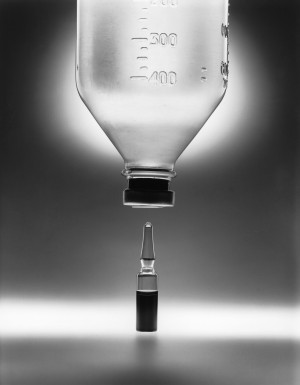Oral Chemo, S-1 Increases Survival in Japanese Operable Pancreatic Cancer Patients
 Adjuvant treatment (treatment after surgery to remove the pancreatic cancer) with the chemotherapy drug S-1 increased Overall Survival (OS) among Japanese patients according to results of a phase III trial presented at the ASCO Gastrointestinal Cancers Symposium in San Fransisco this week.
Adjuvant treatment (treatment after surgery to remove the pancreatic cancer) with the chemotherapy drug S-1 increased Overall Survival (OS) among Japanese patients according to results of a phase III trial presented at the ASCO Gastrointestinal Cancers Symposium in San Fransisco this week.
Patients usually receive the chemotherapy drug gemcitabine following surgery. Previous studies have suggested that treatment with the oral fluoropyrimidine S-1 is as good, not better than gemcitabine among patients with inoperable cancer. However, the results of this phase III trial showed that S-1 was significantly better than gemcitabine – in Asian patients who were operable.
Katsuhiko Uesaka, MD and his colleauges at the Shizuoka Cancer Center Hospital in Shizuoka Prefecture, Japan, compared the how good S-1 was as a chemotherapy after surgery versus gemcitabine in Japanese patients with stage I-III pancreatic cancer.
The researchers randomly assigned 385 patients 10 weeks after their surgery from 33 hospitals in Japan to either six courses of gemcitabine or S-1 given twice daily for 4 weeks and repeated every 6 weeks for four courses. The trial ran from from April 2007 to June 2010.
An interim analysis of the study results showed patients given S-1 had a 44% lower risk of death than patients assigned to gemcitabine. The 2-year survival rates were 70% for patients taking S-1compared with 53% for those taking gemcitabine (hazard ratio = 0.56; P < .001). Relapse-free survival at 2 years was 49% for patients in the S-1 arm compared with 29% for patients in the gemcitabine arm.
However, these results only show improved benefit for Asian (in this case, Japanese) patients. Previous studies have shown that gastro-intestinal side effects such as diarrhoea are far more severe in white patients than for patients of Asian origin. This is because white patients metabolise the drug differently and tconsequently need to have lower doses of the drug. It is not yet known whether white patients will benefit from treatment with S-1 after surgery for pancreatic cancer.
S-1 is available in parts of Europe and several Asian countries, where the drug is approved as a first-line therapy for advanced gastric cancer in combination with another chemotherapy drug, cisplatin. It is not yet approved in the United States, though a phase III gastric cancer trial is underway in the United States.
Uesaka K. Abstract #145. Presented at: Gastrointestinal Cancers Symposium; Jan. 24-26, 2013; San Francisco (( http://gicasym.asco.org/content/105691-133 ))